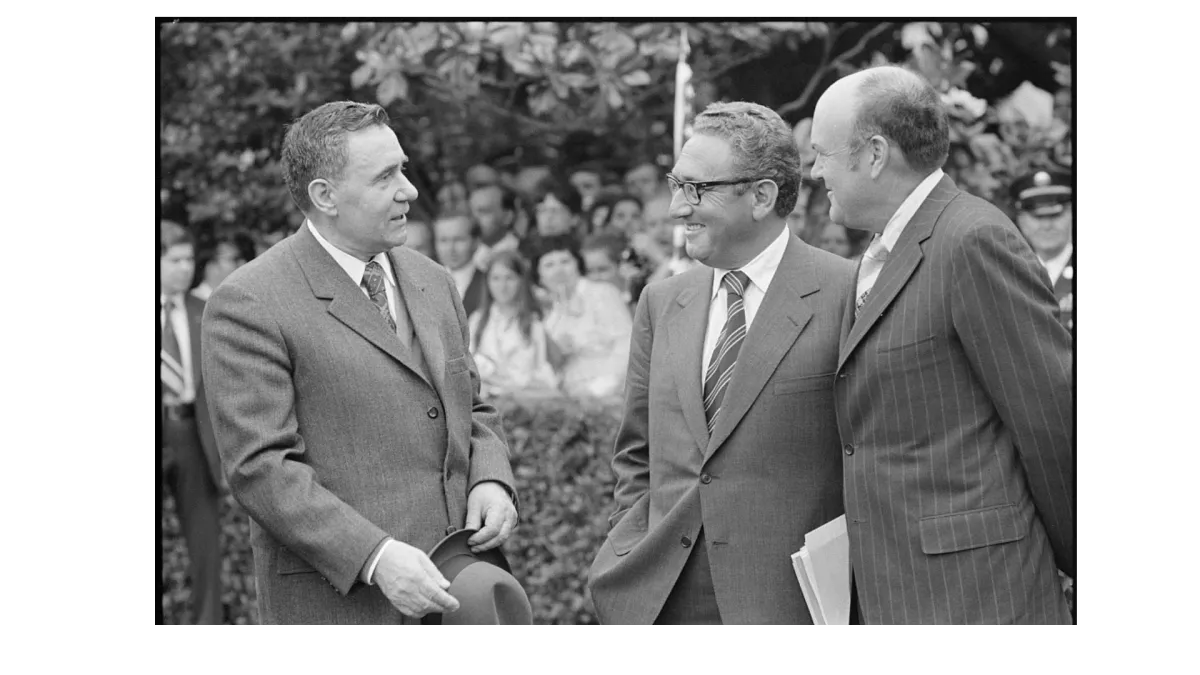Kissinger’s legacy and Trump’s cold realpolitik
In a world where human rights once shaped American diplomacy, a chilling shift has emerged. As The Atlantic reveals, Donald Trump's administration has taken Henry Kissinger’s cold realpolitik to new extremes, cutting programs that once championed democracy and human rights. The idealism that guided past U.S. leaders is being swept away, leaving a pragmatic and morally indifferent foreign policy in its wake.
The late Henry Kissinger, once Secretary of State under President Richard Nixon, was known for his cynical, cold-blooded approach to global diplomacy, where pragmatic political and security concerns often trumped moral considerations. A prime example of this is a 1973 Oval Office conversation in which Kissinger told Nixon that the emigration of Soviet Jews was not an American concern, even if Jews were being sent to gas chambers. This statement, coming from a man who himself escaped Nazi Germany, epitomizes the realpolitik philosophy that defined Kissinger’s career: an unwavering focus on power dynamics rather than ethical concerns.
Kissinger's stance on human rights was pragmatic; he saw them as a distraction from the ultimate goal—maintaining global stability and avoiding nuclear conflict. In his worldview, actions that preserved this stability—like engaging with the Soviet Union or opening diplomatic channels with China—were worth the moral compromises, even if those compromises meant turning a blind eye to atrocities. He was not alone in his cold realpolitik; past U.S. administrations, while pragmatic, continued to frame human rights as important, though secondary, to national interests.

However, under Donald Trump’s administration, the prioritisation of power has gone even further. Trump has explicitly sidestepped moral concerns, dismantling many key programs devoted to human rights and democracy promotion. The U.S. Agency for International Development (USAID) and institutions like the National Democratic Institute have seen massive budget cuts, while the U.S. Agency for Global Media, which broadcasts into countries like Iran and North Korea, has been gutted. Moreover, under Trump, a directive was issued to minimise or eliminate human-rights content from official government reports, ensuring that abuses like prison conditions, government corruption, and dissident suppression would no longer be scrutinised or exposed.
This dramatic departure from earlier administrations, including Kissinger’s, signals a dangerous evolution of U.S. foreign policy, where humanitarian concerns are no longer seen as even peripheral to national interests. Whereas Kissinger justified his moral compromises as a necessary evil to preserve global order, Trump’s approach is simpler: human rights are irrelevant to the pursuit of American power.
For Kissinger, human rights were an inconvenient but occasional part of global politics, a necessary foil to the greater good of international order. In contrast, Trump’s worldview rejects idealism entirely, treating human rights activism as a “radical political ideology” that hinders the U.S. from asserting its power on the global stage. This shift, coupled with a retreat from traditional diplomatic efforts and a disregard for international institutions, paints a bleak picture of America’s future role in the world.
In the end, while Kissinger’s legacy may be marked by cold, strategic compromises that at least acknowledged the role of moral considerations, Trump represents a more starkly transactional world where power alone dictates the terms of engagement. This article highlights the disillusioning reality of an America no longer willing to even pay lip service to the principles that once defined its foreign policy. As The Atlantic poignantly suggests, under Trump, there is no one left to answer the phone when the world needs America’s moral voice.
By Vugar Khalilov








